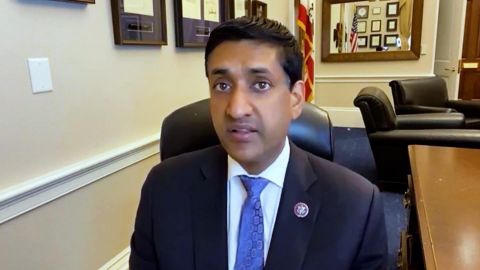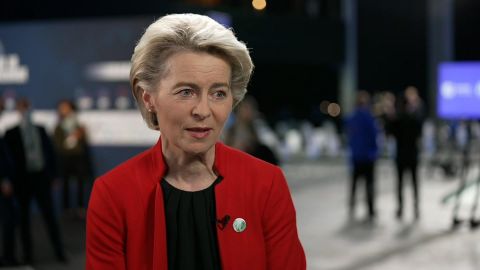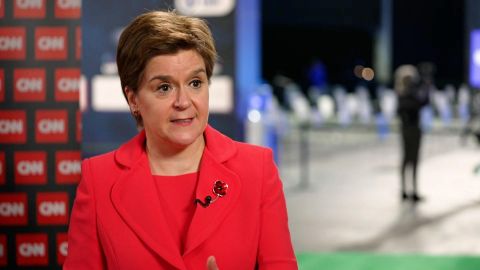Read Transcript EXPAND
CHRISTIANE AMANPOUR: First Minister, welcome back to the program.
NICOLA STURGEON, SCOTTISH FIRST MINISTER: Thank you.
AMANPOUR: So, here you are. This is Scotland. You’re the first minister. You must be proud to be hosting this, be the host country.
STURGEON: Of course. It’s a big honor for Scotland to host a summit so important. Glasgow is also my home city. So, I feel a bit of personal pride in the city that I live in and represent in the Scottish Parliament. But I also feel a big sense of responsibility.
AMANPOUR: Yes.
STURGEON: I’m not directly around the negotiating table, but, as a leader, I want to play my part in making this summit a success. I think success is in the balance. It’s not guaranteed. There is an enormous job of work for world leaders to do here over the next couple of days, if we’re not to let down the next generation.
AMANPOUR: You know, the British prime minister, Boris Johnson, he has said, if Glasgow fails, the whole thing is going to fail, in other words, the whole effort to keep temperatures below 1.5, or at 1.5. Do you feel that kind of edge?
STURGEON: Yes, I don’t think he’s wrong. But what I would then say is, let’s make sure Glasgow doesn’t fail. Now, what does success look like? Already, I think we have seen expectations lowered a bit. A few months ago, we might have hoped that Glasgow would deliver the hard commitments to actually set the definite pathway to keeping global warming to 1.5 degrees. That’s possibly unlikely. But we need to try to close the emissions gap, and come out of this summit with a clear process and time scale to completely closing the gap over the next couple of years, because this decade is critical. If we don’t see emissions start to reduce dramatically by 2030, then net zero by mid-century, and 1.5 degrees starts to look unlikely. And the consequences of that are stark. We’ve also got to see an increase in the delivery of the commitments around climate finance, because the developed world that have done so much to cause climate change and benefited from that owe a big obligation to the developing world to help them make the changes that are now required.
AMANPOUR: So, from my conversations, and also from what some of the officials are saying, it looks like the finance piece of this might actually be improved, that they — the leaders might come up with some more financing than they have up until now. But the key is what you just touched on, which is not just promises and words and papers, but actual delivery on the cutting of emissions. The G20 did not produce that. And President Biden said — I mean, he sort of threw the blame countries like China and Russia, which he said didn’t even come to play, didn’t even come with any meaningful commitments at all. When you say the tone is sort of being underplayed, so to speak, expectations are being lowered, do you think that’s, like, what politicians do in order to then surprise? Or are you really — are you really concerned?
(CROSSTALK)
STURGEON: No, I’m really concerned.
AMANPOUR: Yes.
STURGEON: So, I hope there’s a bit of underplaying of expectations now in order to overperform over the course of the summit. I’m not convinced that is what is actually happening. I think there is a genuine gap between the rhetoric and the delivery.
About This Episode EXPAND
Global leaders are gathered at the COP26 summit to collaborate in the fight against climate change. Christiane sits down with the European Union Commission President for an exclusive interview. Scotland’s First Minister finds herself hosting top officials and climate leaders. Barbadian Prime Minister calls on rich nations to help nations like hers. Rep. Ro Khanna helped lead a historic hearing.
LEARN MORE



